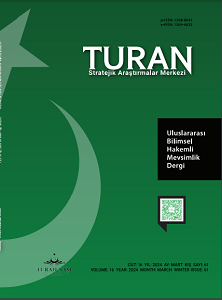EKONOMİK KRİZ DÖNEMLERİNDE SİVİL TOPLUM KURULUŞLARININ(STK) FONKSİYONLARI
FUNCTIONS OF CIVIL SOCIETY ORGANIZATIONS (CSO) IN TIMES OF ECONOMIC CRISIS
Author(s): Mikail Erol, Hakan Kantarci, Ahmet Münir GökmenSubject(s): Civil Society, Governance, Political economy, Socio-Economic Research
Published by: Sage Yayınları
Keywords: Economic crisis; governance; civil society; Non-Governmental Organization (NGO); development policies;
Summary/Abstract: Civil society, outside the public and private sectors; is the third sector. Civil society is the fifth power along with the legislature, executive, judiciary and media. Therefore, civil society has a vital role in a democratic society. Non-governmental organizations (NGOs) are independent from political actors, governments and public institutions; They are non-profit structures. NGOs are complementary to the public and private sectors as a requirement of good governance. NGOs have been an important pillar of governance in cooperation with the public and private sectors in the development process, and in a way, they have been positioned as the third sector. In this context, the roles of NGOs have also changed. NGOs positioned as auxiliary and/or supportive in development policies are in a more autonomous (determinative) position. Associations, foundations, unions, cooperatives, civil initiatives, platforms, democratic mass organizations, professional chambers (engineers, doctors, lawyers, etc.) are counted among non-governmental organizations.
Journal: TURAN-SAM
- Issue Year: 16/2024
- Issue No: 61
- Page Range: 11-20
- Page Count: 10
- Language: Turkish

